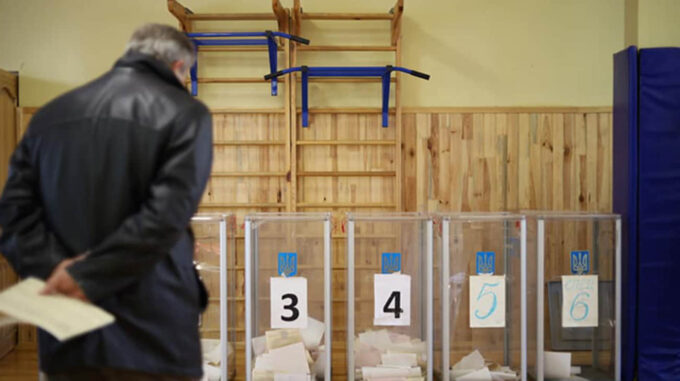More than seventy percent of Ukrainians oppose holding presidential and parliamentary elections during the ceasefire, according to recent sociological survey results

This study, conducted by the Kyiv International Institute of Sociology (KIIS), took place from May 2 to May 12, 2023, and serves as another indication of the deep societal split regarding the issue of electoral campaigns amid ongoing war. According to the survey, 71% of Ukrainians are against holding elections during the period of the ceasefire, even if security guarantees are provided for the country. They believe that elections should only be organized after the complete cessation of hostilities and the signing of a final peace agreement. At the same time, about 25% of respondents think that elections can and should be held now or immediately after the ceasefire is established, even if there are potential risks and uncertainties in the security situation. Interestingly, over the past few months, there has been a trend toward increasing support for holding elections even during the ceasefire. The proportion of supporters of early elections increased from 19% in March 2023 to 25% in May, indicating a slight rise in those favoring quick elections. Simultaneously, the number of people insisting that elections should only take place once the war is fully over decreased from 78% to 71%. The "Omnibus" survey was conducted via telephone interviews with randomly selected mobile numbers across all regions controlled by the Ukrainian government. A total of 1010 respondents aged 18 and older participated. According to the methodology, under normal circumstances, the margin of error for such a sample at a 95% confidence level does not exceed 4.1% for indicators around 50%. However, in the context of the war, it is important to also consider additional systematic deviations caused by the complex situation and shifts in public opinion. The survey results raise important questions regarding Ukraine’s political course during wartime, highlighting that a majority of citizens are reluctant to rush into elections until stability is restored. At the same time, some segments of the population wish to carry out democratic processes under any circumstances, emphasizing the need for clearer positions from state institutions concerning the future electoral process. The discussion on this topic continues, as political forces and government officials try to balance the need to ensure legitimacy of authority with security risks. Elections during wartime remain one of the most effective tools for confirming the people's will; however, most Ukrainians believe that the best time for them has not yet arrived. Public opinion, as shown by the survey, increasingly leans toward waiting for a sustainable peace to ensure that voting is safe and that the results are legitimate and trusted. Experts note that the decision-making process regarding future elections depends not only on political will but also on the situation at the front and the level of security in the country. Given current sentiments, it is likely that the issue of election dates will remain relevant in the coming months, sparking even more debate and controversy within society and the political sphere.

